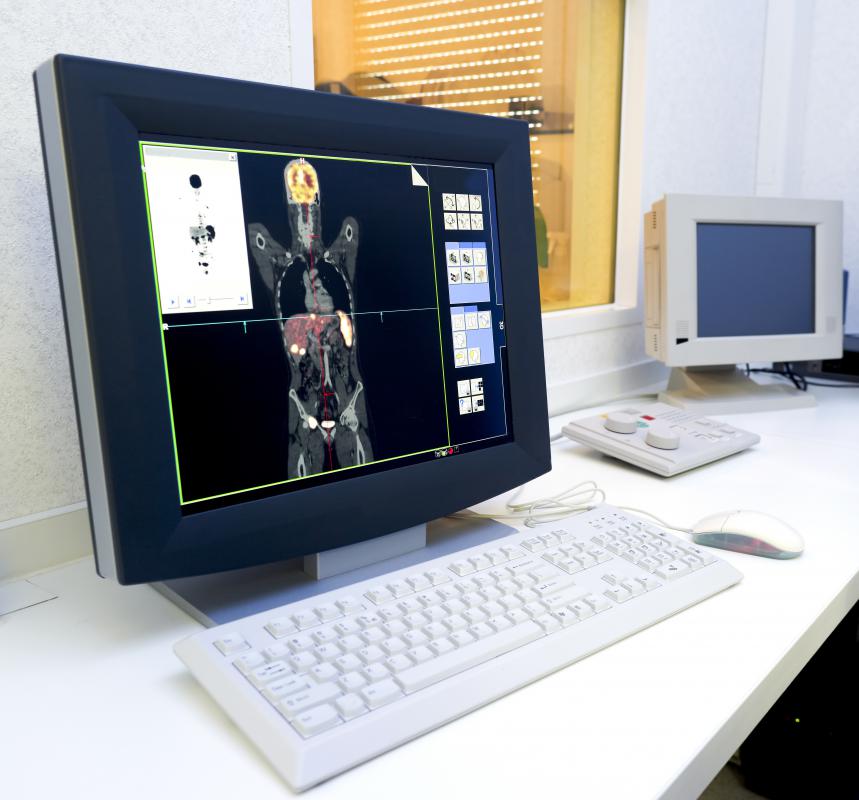At WiseGEEK, we're committed to delivering accurate, trustworthy information. Our expert-authored content is rigorously fact-checked and sourced from credible authorities. Discover how we uphold the highest standards in providing you with reliable knowledge.
What are the Different Nuclear Medicine Technologist Careers?
Nuclear medicine technologist careers provide great opportunities to meet a wide range of people, work with leading-edge technology, and have a positive impact in the health services. There are a range of different nuclear medicine technologist careers available, such as research, patient care, and sale representative. All these career paths require a combination of technological and people skills. The ability to work as part of a team is essential in this field.
The training required to qualify for these nuclear medicine technologist careers is a three- or four-year program from a university or community college. Many technologists also have a formal background in nursing or other medical technologist field. Work placements are typically part of the training program, providing the practical skills necessary for the different nuclear medicine technologist careers.

The development and testing of nuclear treatment equipment and techniques requires collaboration between technologist and physician. This type of research work is essential to advancing the accuracy of available equipment, reducing patient side effects, and increasing the effectiveness of treatment programs. Common research projects include evaluation of new equipment and comprehensive research studies of the effectiveness of the treatment on long- and short-term patient health.
The primary role of a nuclear medicine technologist is patient care. Working in a hospital or diagnostic center, the technologist reviews the tests and treatment program prescribed by the physician. The ability to communicate the process clearly to the patient and complete the tests and treatment accurately is essential. For many patients, nuclear medicine is very frighting, and a calm bedside manner makes a huge difference to patient outcomes.
Sales representative positions are available for a range of nuclear-related products. This includes the actual nuclear imaging equipment, nuclear isotopes, storage and transportation devices, management software, and more. An educated, informed sale representative is a great asset when selling this type of equipment. The client is typically a physician or hospital administrator who expects a specific level of knowledge and expertise from the sale representative.
The field of nuclear medicine is expanding, as it becomes a recognized and accepted treatment and diagnostic tool. Although there are still questions surrounding the long-term use of nuclear isotopes, the higher-quality images and the impact on cancer treatment programs have been great. Research is advancing the field tremendously, finding new ways to safely store and transport nuclear particles, as well as innovative methods for using existing tools and equipment to obtain higher-quality images and better diagnosis for patients with a range of illnesses.
AS FEATURED ON:
AS FEATURED ON:











Discuss this Article
Post your comments